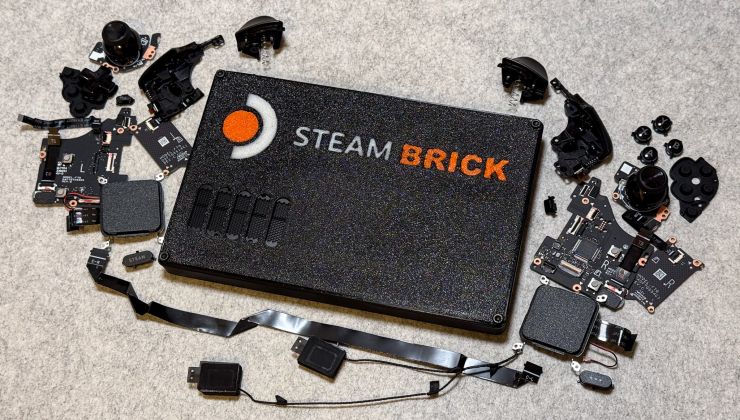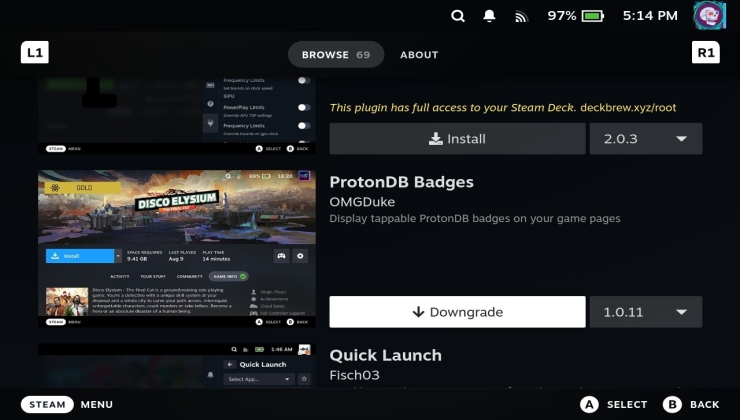EA has just recently given out more information on their upcoming EA AntiCheat (EAAC), not to be confused with Easy Anti-Cheat (EAC), because EA are apparently terribly at naming.
In their new Deep Dive, they went over various details about their new EAAC and how it will affect their games. The first big note is that it will be kernel-mode, which is usually something that doesn't play nicely (or at all) with Linux and so this could be some bad news for the Steam Deck too. Not only that, it's an anti-tamper tech too.
Take FIFA 22 for example, it's playable on Linux and has a "Playable" Steam Deck rating. However, FIFA 23 will be launching in October and guess what? It will have EA's new AntiCheat. So, this might mean it won't work at all.
It won't end up in every game from EA though, as they said in the post they will work with each studio to determine their needs. It also mentions for some titles they may only use "user-mode protections" (no kernel-level stuff) or just not have any at all.
A worrying trend though, with more and more anti-cheat going kernel-side which is almost always developed just for Windows. It's problematic for another reason though, like the recent issue with Genshin Impact where the anti-cheat driver was abused to disable anti-virus.
What do you think to this news?
because EA are apparently terribly at naming.
Looking at Origin, they are terrible at coding too. Knowing EA, that stuff won't even run properly on Windows...
Personally, it won't affect me too much, as I have no interest in EA's games other than the Sims, which really has no need for anti-cheat. But I don't like the trend to apply band-aid solutions to cheating issues instead of designing the game to be cheat-resistant from the get-go. Particularly not when said band-aid solutions behave just like malware....
Particularly not when said band-aid solutions behave just like malware....Perhaps it's just me, but in my books they meet the exact definition of it. It's like nobody learned from the music industry's Windows rootkit nonsense 20-odd years ago, or something.
I dunno, like it only protects you from low level cheaters unless you pay more: auto-aim protection upgrade and the like
A worrying trend though, with more and more anti-cheat going kernel-side which is almost always developed just for Windows.Just like most other malware. Ultimate goals may be slightly different, but the methods employed by these kernel-level anti-cheat systems are exactly the same as rootkits: take control of the system, hide its presence, prevent its removal, disable competing malware.
If you want to mess around on kernel level, you gotta convince me why i should and that i can trust you.

Since it comes from EA I have to ask, do we know if it has abusive micro transactions embedded?
You mean something like Pay2Cheat?
I'm trying to care about this. Really. But.... it's EA, so I failed.
I too, was trying to care about this. But... it's FIFA, so I failed. Lol.
What I find interesting is the fact that I've never heard of cheating on FIFA, I mean, except that shitty handicap system which is almost cheating IMO.
I hate when dev apply some instrusive mechanic just to protect the microtransaction system.
AC is "reasonable" to improve the PvP experience, nothing more.
This and the BioShock fiasco should make one thing clear to gamers; go old school with the content you own and do it now. I've already transitioned mostly to GOG copies, Luxtorpeda, or the few Steam games that are DRM free. Anything else doesn't need to be installed.
EA AntiCheat could spell trouble for Steam Deck / LinuxOnly if you care about EA....... Otherwise its not a problem at all for the Steam Deck......
If I'm GOG, right now I'm busting my ass to massively expand the Linux capabilities of my platform, whether thats reviving Galaxy, partnering with Heroic, bundling Proton and/or Source Ports with games, whatever it takes.
This and the BioShock fiasco should make one thing clear to gamers; go old school with the content you own and do it now. I've already transitioned mostly to GOG copies, Luxtorpeda, or the few Steam games that are DRM free. Anything else doesn't need to be installed.
But in reality GOG retired their Linux Galaxy efforts recently. Lutris provides more than enough support I find anyways.
Could this be retroactively added to Mass Effect: Legendary Edition? If not, I don't care; I hate EA.
Me too, I bloody despise EA and if not for the Mass Effect games, a few Star Wars games (and some other acquisitions like my Deadspace games) there's nothing I'd need EA for. I mostly don't like EA's games.
Origin has been a CURSE for me. I can't even get it to run with modern Proton or Proton-GE (still works on his wine based Proton GE, but not since he rebased on Valve's fork. So I'm using "Proton-7.0rc6-GE-1". It happens to work best with that one... focus issues with Proton-7.1-GE and exceptions with anything newer). Origin also works well for me in Lutris with their wine runners (currently lutris-7.2-2)
I have rued the day that EA acquired Bioware.
Last edited by Grogan on 13 Sep 2022 at 10:18 pm UTC













 How to set, change and reset your SteamOS / Steam Deck desktop sudo password
How to set, change and reset your SteamOS / Steam Deck desktop sudo password How to set up Decky Loader on Steam Deck / SteamOS for easy plugins
How to set up Decky Loader on Steam Deck / SteamOS for easy plugins
See more from me